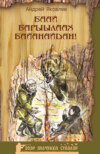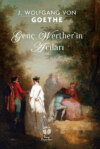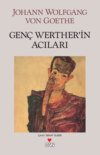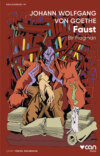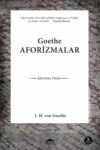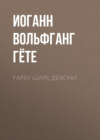Kitabı oku: «German Fiction», sayfa 28
CHAPTER XIV
In spite of all Isabeau's efforts no genuine cheerfulness would return to the group since the walk. But the worst of it was, at least for Botho and Lena, that they could not regain any real cheerfulness even after they had bidden good-bye to Botho's comrades and their ladies, and were beginning their homeward journey quite alone in a coupe that they had engaged. An hour later they had arrived, somewhat depressed, at the dimly lighted depot at Görlitz, and here, as they were getting out, Lena had at once asked quite urgently to be allowed to go the rest of the way through the city alone. "She was tired and out of sorts," she said, "and that was not good." But Botho would not be turned aside from what he considered to be his duty as an escort, and so the two together had traversed in a rickety old cab the long, long road by the canal, constantly trying to keep up a conversation about the excursion, and "how lovely it had been" – a terribly forced conversation, which had made Botho feel only too plainly how right Lena's feeling had been, when in an almost imploring tone she had begged him not to escort her further. Yes, the excursion to "Hankel's Ablage" from which they had expected so much, and which had actually begun so charmingly and happily, had ended only in a mingling of ill humor, weariness and discontent; and only at the last moment, when Botho, with a certain feeling of being to blame, had bidden Lena a friendly and affectionate "good night," did she run to him, take his hand and kiss him with almost passionate impetuosity: "Ah, Botho, things were not as they should have been to-day, and yet no one was to blame … not even the others."
"Never mind, Lena."
"No, no. It was nobody's fault, that is the truth, and it cannot be altered. But the worst of it is, that it is true. If anyone is to blame, he can ask pardon and so make all good again. But that is no help to us. And then too, there is nothing to forgive."
"Lena …"
I "You must listen for a moment. Oh, my dearest Botho, you are trying to hide it from me, but the end is coming. And quickly too, I know it."
"How can you say so!"
"To be sure, I only dreamed it," Lena went on. "But why did I dream it? Because all day long it had been in my mind. My dream was only what my heart told me. And what I wanted to tell you, Botho, and the reason why I ran after you a few steps was, that what I said last night holds good. That I could pass this summer with you was a joy to me, and always will be, even if I must be unhappy from this day forth."
"Lena, Lena, do not say that …"
"You feel yourself that I am right; only your kind heart struggles against it and will not admit the truth. But I know it: yesterday, as we were walking across the meadow, chattering together, and I picked you the bunch of flowers, it was our last joy and our last beautiful hour."
With this interview the day had ended, and now it was the following morning, and the summer sunshine was streaming brightly into Botho's room. Both windows stood open and the sparrows were quarreling in the chestnut tree outside. Botho himself was leaning back in a rocking-chair, smoking a meerschaum pipe and striking with his handkerchief now and then at a big blue-bottle fly that came in at one window as fast as he went out of the other, to buzz persistently around Botho.
"If I could only get rid of the creature. I should enjoy tormenting it. These big flies are always bearers of bad news, and then they are as spitefully persistent as if they took pleasure in the trouble that they announce." And he struck at the fly once more. "Gone again. It is no use. Resignation then is the only help. On the whole, submission is the best. The Turks are the cleverest people."
While Botho was thus soliloquising, the shutting of the little wicket gate led him to look into the garden, where he saw the letter carrier who had just entered and with a slight military salute and a "Good morning, Herr Baron" first handed him a paper and then a letter through the low window. Botho threw the paper aside, and looked at the letter, on which he easily recognised his mother's small, close, but still very legible handwriting. "I thought as much … I know already, before I have read it. Poor Lena."
And he opened the letter and read:
"Schloss Zehden, June 29, 1875."
"My Dear Botho:
"The apprehension of which I told you in my last letter, has now proved well founded: Rothmüller in Arnswalde has demanded his money on October 1 and only added 'Because of our old friendship' that he would wait until New Year, if it would cause me any embarrassment. 'For he knew very well what he owed to the memory of the departed Baron.' The addition of this expression, however well it may have been meant, was doubly humiliating to me; it showed such a mingling of pretentious consideration, which never makes a pleasing impression, least of all from such a source. You can perhaps understand the care and discomfort that this letter gave me. Uncle Kurt Anton would help me, as he has already done on former occasions. He loves me, and you best of all, but always to claim his benevolence again, is somewhat oppressive and all the more so because he lays the blame for our continual difficulties on our whole family, but especially on us two. In spite of my honest efforts at good management, I am not thrifty and economical enough for him, in which opinion he may be right, and you are not practical and sensible enough for him, in which opinion also he may be quite correct. Well, Botho, that is how things stand. My brother is a man of very fine feeling in regard to justice and reason, and of a perfectly remarkable generosity in money matters, which cannot be said of many of our nobility. For our good Mark of Brandenburg is a province characterized by economy and even, when help is needed, by nervous anxiety. But however kind my brother is, he has his moods and his obstinacy, and finding himself continually crossed in his wishes has for some time past put him seriously out of humor. He told me, the last time I took occasion to mention the demand for the payment of our debt which was then threatening again: 'I am very glad to be of service, sister, as you know, but I frankly confess that to be constantly obliged to help, when one could help oneself at any minute, if only one had a little more foresight and a little less self-will, makes great claims on the side of my character which was never the strongest: I mean on my indulgence…' You know, Botho, to what these words of his referred, and I ask you to take them to heart to-day, just as your Uncle Kurt Anton wished me to take them to heart then. There is nothing which causes you more cold shivers, as I conclude from your own words and letters, than sentimentality, and yet I fear that you are yourself more deeply involved in something of the kind than you are willing to confess, perhaps than you know yourself. I will say no more."
Rienäcker laid down the letter and walked up and down the room, while he half mechanically exchanged the meerschaum for a cigarette. Then he picked up the letter again and read on:
"Yes, Botho, you have the future of all of us in your hands, and it is for you to decide whether this feeling of constant dependence shall continue or cease. You have our future in your hands, I say, but I must indeed add, only for a short time yet, in any case not very much longer. Uncle Kurt Anton spoke with me about this also, especially in connection with Katherine's Mamma, Frau Sellenthin, who, when he was last in Rothenmoor, expressed herself not only very decidedly but with some access of irritation, as to this matter which interested her so keenly. Did the Rienäcker family perhaps believe that an ever-diminishing property increased constantly in value, after the manner of the Sibylline books? (Where she got the comparison, I do not know.) Katherine would soon be twenty-two, had had enough social experience to form her manners, and with the addition of an inheritance from her Aunt Kielmannsegge would control a property whose income would not fall far behind that of the Rienäckers' forest land and the eel pond together. It was not fitting to keep such young girls waiting, especially with such coolness and placidity. If Herr von Rienäcker chose to drop all that had formerly been planned and discussed by the family and to regard agreements that had been made as mere child's play, she had nothing to say against it. Herr von Rienäcker would be free from the moment when he wished to be free. But if, on the contrary, he did not intend to make use of this unconditional freedom to withdraw, it was time to make his intentions known. She did not wish her daughter to be talked about.
"You will not find it difficult to see from the tone of these words, that it is absolutely necessary to come to a decision and to act. You know what my wishes are. But my wishes ought not to bind you. Act as your own intelligence dictates, decide one way or the other, only act. A withdrawal is more honorable than further procrastination. If you delay longer, we shall lose not only the bride, but the whole Sellenthin house as well, and what is worst of all, the friendly and helpful disposition of your Uncle also. My thoughts are with you, and I wish that they might guide you. I repeat, this is the way to happiness for you and for us all. And now I remain, your loving Mother,
"Josephine von R."
When he had read the letter, Botho was much excited. It was just as the letter said, and further delay was no longer possible. The Rienäcker property was not in good condition and there were embarrassments which he did not feel the power to clear away through his own energy and ability. "Who am I? An average man from the so-called upper circle of society. And what can I do? I can ride and train a horse, carve a capon and play cards. That is all and therefore I have the choice between a trick rider, and a head butler and a croupier. At the most I might add a soldier, if I am willing to join a foreign legion. And then Lena could go with me as daughter of the regiment. I can see her now with a short skirt and high-heeled shoes and a knapsack on her back."
He went on speaking in this tone, and actually enjoyed saying bitter things to himself. Finally, however, he rang and ordered his horse, because he meant to go riding. And it was not long before his beautiful chestnut, a present from his uncle and the envy of his comrades, was waiting outside. He sprang into the saddle, gave the stable boy some orders and rode to the Moabiter Bridge, after crossing which, he turned into a broad road that led over fens and fields to the Jungfern Haide. Here he let his horse change from a trot to a walk, and while he had thus far pursued all sorts of dim thoughts, he now began to cross-examine himself more sharply every moment. "What is it then that hinders me from taking the step that everyone expects of me? Do I mean to marry Lena? No. Have I promised her that I would? No. Does she expect it? No. Or would the parting be any easier if I should postpone it? No. Still no, again and again. And yet I delay and hesitate to do the one thing which positively must be done. And why do I delay? What is the cause of this vacillating and postponing? Foolish question. Because I love her."
His soliloquy was here interrupted by the sound of gun shots from the Tegler shooting range, and only when he had once more quieted his restive horse did he take up again the thread of his thoughts and repeat: "Because I love her! Yes. And why should I be ashamed of this affection? Feeling reigns over all, and the fact that one loves also gives one the right to love, no matter how much the world may shake its head or talk about riddles. For that matter it is no riddle, and even if it were I can solve it. Every man according to his own nature is dependent upon certain little things, sometimes very, very little things, which in spite of being so small, mean life for him or the best there is in life. And for me the best there is in life is simplicity, truth, naturalness. Lena has all this, that is how she won me, and there lies the magic from which it now seems so difficult to free myself."
Just now his horse shied and he saw a hare that had been driven out of a strip of meadow land, and was darting right in front of him towards the Jungfern Haide. He watched the creature curiously and only resumed his reflections when the fugitive had disappeared among the trunks of the trees. "And was what I wanted," he went on, "anything so foolish and impossible? No. It isn't in me to challenge the world and declare open war against its judgments; besides, I do not believe in such quixotism. All that I wanted was a still, secluded happiness, a happiness which I expected would sooner or later win the approval of society, because I should have spared it the shock of defiance. Such was my dream, such were my hopes and my thoughts. And now shall I abandon this happiness and exchange it for another that is no happiness to me? I am wholly indifferent to a salon, and I feel a repulsion for all that is untrue, high-flown, dressed up or disguised. Chic, tournure, savoir faire-are all just as ugly to me as their foreign names."
At this point in Botho's reflections, the horse, whose reins had been lying loose for the past quarter of an hour, turned as if of its own accord into a side path, which led first to a bit of farm land and immediately behind this to a grass plot surrounded by undergrowth and a few oak trees. Here, in the shade of an old tree, stood a low, solid cross, and as he rode up to have a better look at the cross, he read: "Ludwig v. Hinckeldey, died March 10, 1856." What an impression this made upon him! He had known that the cross was somewhere in this region, but had never been exactly here before, and he now regarded it as a sign, that his horse left to his own devices had brought him to this very spot.
Hinckeldey! It was now nearly twenty years since the death of this man, whose power was then almost absolute; and everything that had been said in his parents' house when the news came, now came back vividly to Botho's mind. And more clearly than anything else he remembered one story. One of the citizens, who was especially trusted in other ways as an adviser by his chief had warned and admonished him against duels in general, and especially against such a duel under such circumstances, as a folly and a crime. But his chief, suddenly taking his stand as a nobleman on this occasion, had answered brusquely and haughtily: "Nörner, you do not understand anything about such matters." And an hour later he was dead. And why? For the sake of a conception of what was required of a nobleman, for a whim of a class of society, which proved more powerful than reason, even more powerful than the law to uphold and protect, which was especially his duty. "Instructive." And what in particular have I to learn from this story? What does this monument preach to me? In any case, one thing, that our ancestry determines our deeds. He who obeys this principle may go to ruin, but he goes to ruin in a better way than he who disobeys it.
While he was thinking thus, he turned his horse around and rode across the field towards a great factory, a rolling mill or a machine shop, from the many chimneys of which flames and smoke were rising. It was noon, and part of the workmen were sitting outside in the shade, eating their dinner. The women, who had brought them their food, stood near by chatting, several with babies in their arms, laughing amongst themselves whenever a playful or sarcastic remark was made. Rienäcker, who quite rightly believed that he appreciated naturalness, was delighted with this picture, and with a sort of envy he gazed at the group of happy people. "Work and daily bread and an orderly life. When our people from the Mark marry, they have nothing to say about love and passion, they merely say: 'I need to lead an orderly life.' And that is a fine trait in the life of our people and not at all prosaic. For order is a great thing, and sometimes it is worth everything. And now I must ask myself, has my life been 'orderly'? No. Order means marriage." In this strain he talked to himself for a while longer and then he saw Lena standing before him once more, but she did not look at him reproachfully or complainingly, but rather the reverse, as if she were in friendly agreement with him.
"Yes, my dear Lena, you too believe in work and orderly living, and you will understand and not make it hard for me … but it is hard all the same … for you and for me."
He put his horse to the trot again and kept along by the Spree for a little while more. Then, however, he turned aside into a bridle path, which led past the tents which lay in the noonday silence, then past the Wrangel Spring and soon afterwards to his own door.
CHAPTER XV
Botho wanted to go to Lena at once, and when he felt that he had not strength enough for that, he wanted at least to write. But even that was too much for him. "I cannot do it, not to-day." And so he let the day go by and waited until the next morning. Then he wrote very briefly.
"Dear Lena:
"Things are turning out, just as you told me the day before yesterday. We must part. And we must part forever. I have had letters from home which compel me; it must be, and since it must be, let it be quickly… Ah, I wish these days lay behind us. I will say no more, not even how my heart aches… It was a beautiful time, though so brief, and I shall never forget anything that has been. Towards nine I shall come to you, not earlier, for it must not last long. Auf Wiedersehen! only this once more, auf Wiedersehen! Your own,
"B. v. R."
And so he came. Lena was standing at the gate and received him as usual; not the slightest trace of reproach or even of painful renunciation was to be seen in her face. She took his arm and so they walked along the front garden path.
"It is right that you have come … I am happy because you are here. And you must be happy too."
With these words they reached the house, and Botho started to go into the large front room as usual. But Lena led him further along and said: "No. Frau Dörr is in there."
"And is she still angry with us?"
"Oh, no. I comforted her. But what do we want with her to-day? Come, it is such a beautiful evening and we want to be alone."
Botho agreed, and so they went along the passage and across the yard to the garden. Sultan did not stir and only blinked at the two, as they followed the long middle path and then went over to the bench that stood between the raspberry bushes.
They sat down on the bench. It was very still, only they could hear a chirping from the fields beyond and the moon was high above them.
She leaned against him and said quietly and affectionately: "And so this is the last time that I shall hold your hand in mine?"
"Yes, Lena. Can you forgive me?"
"How can you always ask that? What have I to forgive?"
"That I make your heart ache."
"Yes, it aches. That is true."
And she was silent again and looked up at the dim stars that were appearing in the sky.
"What are you thinking of, Lena?"
"How beautiful it would be if I were up there."
"Do not speak so. You ought not to wish your life to be over; it is only a step from such a wish …"
She smiled. "No, not that. I am not like the girl who ran and threw herself into the well, because her sweetheart danced with some one else. Do you remember when you told me about that?"
"But what do you mean then? It does not seem like you to say such a thing, just for the sake of talking."
"No, I meant it seriously. And really" (she pointed up to the sky), "I should be glad to be there. Then I should be at peace. But I can wait… And now come, let us walk out in the fields. I brought no wrap and I find it cold sitting still."
And so they followed the same path through the fields that had led them the other time as far as the first houses of Wilmersdorf. The tower was plainly visible under the bright starry sky while a thin mist was drifting over the meadow land.
"Do you remember," said Botho, "how we took this same walk with Frau Dörr?"
She nodded. "That is why I proposed to come here; I was not chilly, or scarcely at all. Ah, that was such a beautiful day and I have never been so gay and happy, either before or afterwards. Even now my heart laughs, when I think how we walked along singing, 'Do you remember.' Yes, memory means so much-it means everything. And I have that and I can keep it and nothing can ever, take it away from me. And I can feel plainly how it will lighten my heart."
He embraced her. "You are so good."
But Lena went on quietly: "And I will not let it pass without telling you all about it, how it is that my heart is so light. Really it is just the same thing that I told you before, the day before yesterday, when we were in the country on our half-spoiled excursion, and afterwards when we were saying good-bye. I always saw this coming, even from the beginning, and nothing has happened but what had to happen. If one has had a beautiful dream, one should thank the Lord for it, and not lament that the dream ends and reality begins again. It is hard now, but all will be forgotten or will seem pleasant again. And some day you will be happy again and perhaps I shall too."
"Do you believe so? And if not? What then?"
"Then we must live without happiness."
"Ah, Lena, you say that as if happiness were nothing. But it is something, and that is what distresses me, and it seems to me as if I had done you an injustice."
"I absolve you from that. You have done me no injustice, you did not lead me astray and you made me no promise. Everything was my own free choice. I loved you with all my heart. That was my fate, and if it was a sin, then it was my sin, and more than that, a sin in which I rejoice with all my heart, as I have told you again and again, because it was my joy. If I must pay for it, I will pay gladly. You have not injured, hurt, or damaged anything, unless perhaps what men call propriety and good morals. Shall I distress myself about that? No. Everything will come right again, and that too. And now come, let us turn back. See how the mist is rising; I think Frau Dörr must have gone home by this time and we shall find my good old mother alone. She knows everything, and all day long she has only said the one same thing."
"And that was?"
"That all was for the best."
Frau Nimptsch was alone, as Botho and Lena came in. The room was still and dusky and only the firelight flickered amongst the great shadows that lay across the room. The goldfinch was already asleep in his cage, and there was not a sound but now and then the hissing of the boiling water.
"Good evening, Mutterchen," said Botho.
The old woman returned his greeting and was going to rise from her footstool to draw up the big armchair. But Botho would not allow it and said: "No, Mutterchen, I will sit in my old place."
And he pushed the wooden stool up to the fire.
There was a short pause; but soon he began again: "I have come to-day to bid good-bye and to thank you for all the loving-kindness that I have enjoyed here so long. Yes, I thank you from my heart. I was so happy and always loved to be here. But now I must leave you, and now I can only say that perhaps it is better so."
The old woman did not speak but nodded as if in agreement.
"But I shall not be gone out of the world," Botho went on, "and I shall not forget you. And now give me your hand. That is right. And now good-night."
Hereupon he rose quickly and walked to the door, while Lena clung to his arm. And so they walked as far as the garden gate, without another word being spoken. But then Lena said: "Quick now, Botho. My strength will not hold out any longer; these two days have really been too much. Farewell, my dearest, and may you be as happy as you deserve to be, and as happy as you have made me. Then you will be happy. And we will not talk about the rest, it is not worth while. There, there."
And she kissed him again and again and then closed the gate. As he stood on the other side of the street, he seemed, when he saw Lena, as if he must turn back for one more word, for one more kiss. But she made an urgent gesture of refusal. And so he walked on down the street, while she, leaning on the gatepost, with her head supported on her arm, gazed after him with wide eyes.
So she stood for a long time until his footsteps had died away in the silence of the night.






